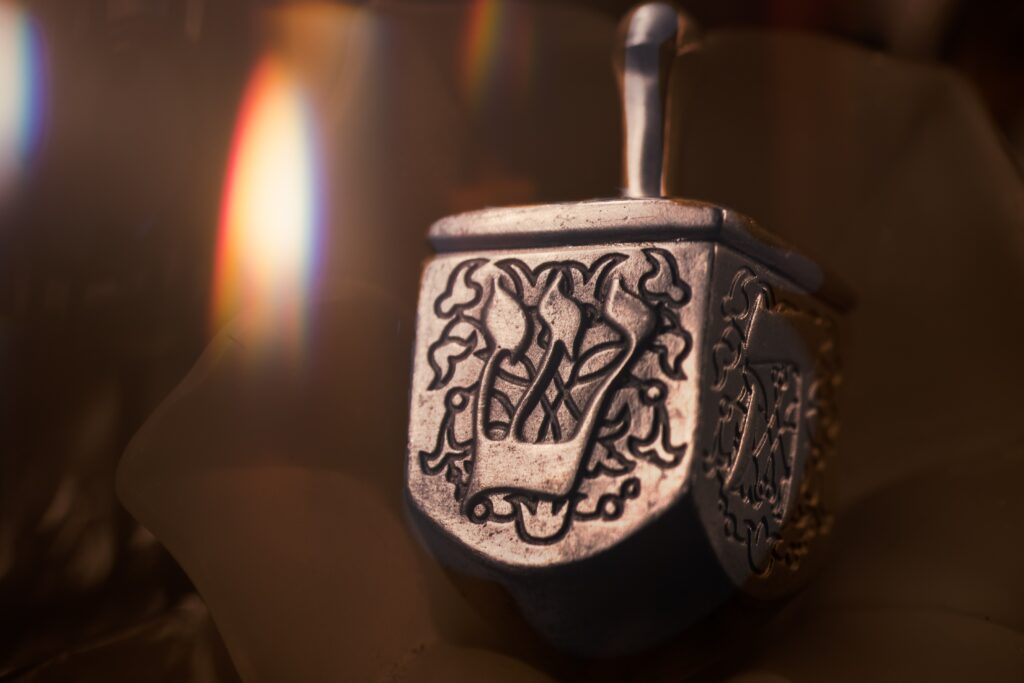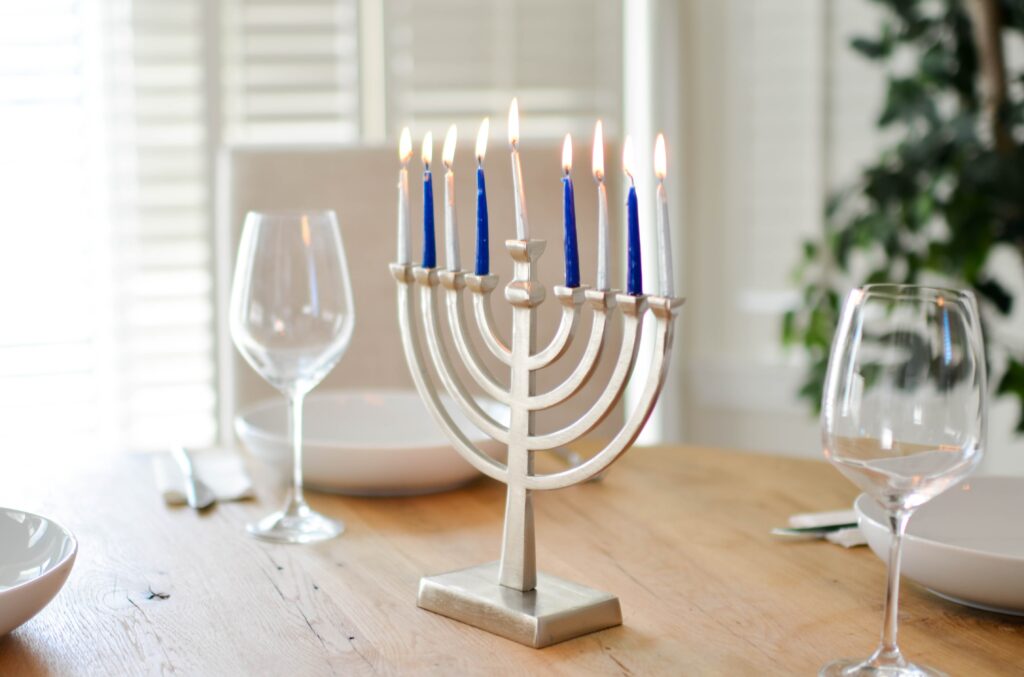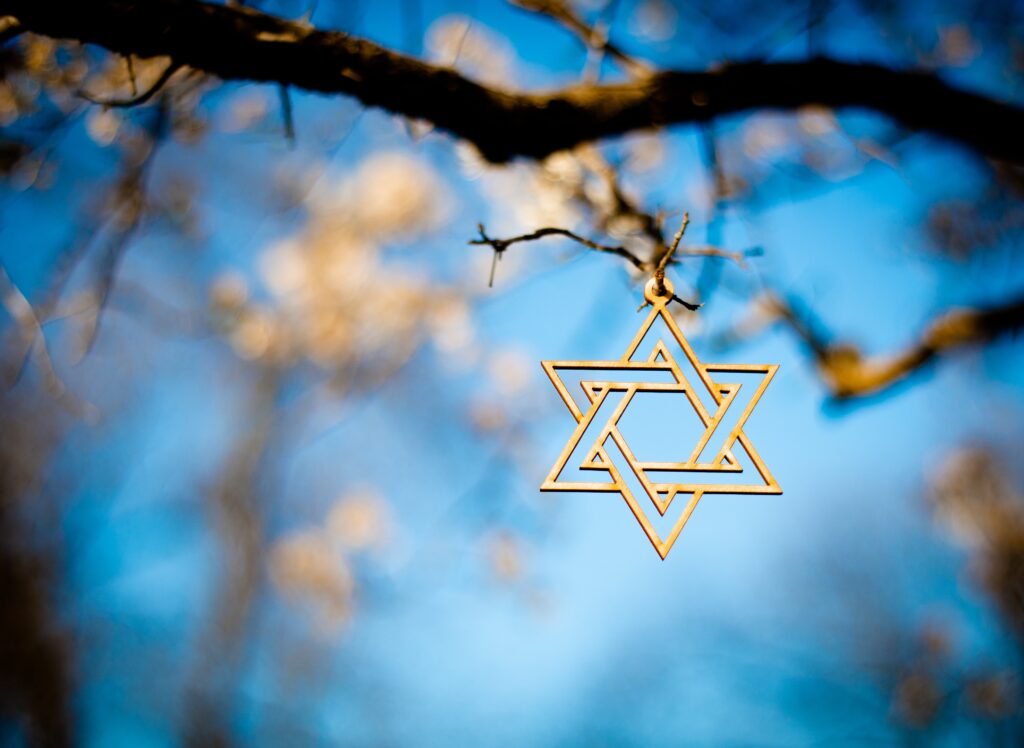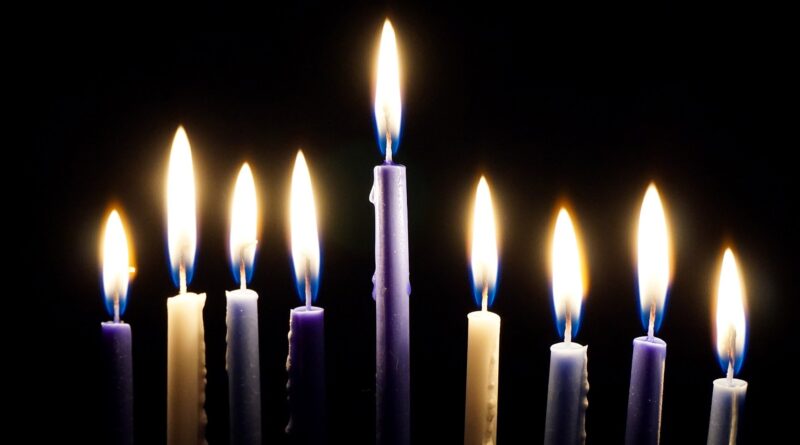Be a source of light this queer Hanukkah and carry it into 2021
As we head into Hanukkah we asked Rabbi David Dunn Bauer to share his thoughts on what it means for Jewish LGBTQ people and how we all can take some inspiration from his message.
From ancient times onwards, humans have fought against mid-winter darkness by lighting torches, logs, lamps, candles, whole trees. Consider the traditions of Solstice, Diwali, Christmas, Yuletide, and Hanukkah. In the long list of Jewish holy days, Hanukkah counts as only a minor festival. Its proximity to Christmas, a more widely celebrated, mid-winter festival of light, ups Hanukkah’s importance in the world, though. Lighting candles and spinning a dreidel become acts of militant resistance by a minority culture in the face of potential erasure by more powerful cultural forces. That contemporary dynamic of political rebellion echoes some of Hanukkah’s historical roots.

In the 2nd Century BCE, Judea was part of a Greek-focused kingdom. Emperor Antiochus IV aggressively promoted the on-going Hellenization of Jewish culture, manifesting in distortions of Jewish law and traditional Jewish practices of ritual purity. A priest from the town of Modi’in, Mattathias, with his sons led a successful guerilla revolt to restore pre-Hellenized Jewish norms. The revolt lasted from 167 to 160 BCE. One of Mattathias’s sons was Judah Maccabee, who, with his father, has become an heroic figure in Jewish religious culture.
Jews have long viewed the Maccabean Revolt as the Jewish overthrow of Greek oppression. Yet modern historians recognize that to be a mythologization of historical reality. It’s a pretty story that isn’t true. The truth lies closer to a power struggle between two sects within the Judean community, neither essentially nobler than the other. The Maccabees initiated a dynasty that ruled in Judea for a hundred years before being defeated by the Roman Empire which installed Herod the Great in 37 BCE. The story of Hasmonean rule is hardly one story of cultural purity, rather of politics, warfare, assassinations, and civilizational cross-pollination.

The word Hanukkah means “dedication” and refers to the rededication of the Temple in Jerusalem to non-Hellenized Jewish practice. Not one, but two separate miracles are commemorated by the ritual of lighting a hanukkiah, the eight-branched menorah (lamp) which has become the universal symbol of the holiday. One miracle, recounted by the first-Century historian Josephus, was the victory of the hardy band of guerilla warriors led by Judah Maccabee over the mighty Seleucid army, after which Judah ordered an eight-day annual festival to mark the triumph. The second miracle, presented in the Talmud — the compendium of rabbinical story-telling and legal argument that forms the platform on which Jewish life is structured — ignores the military victory, and instead commemorates the miraculous sufficiency of a single night’s amount of oil to keep the Temple lamp burning for eight nights.
Two questionable stories of Divine intervention, based on the same event. One celebrates God for fighting on the side of the sneakiest battalion, while the other praises God for achieving what has to be the world’s most obscure little miracle.
Whatever origin story we choose to commemorate — either or both or neither — rituals of candle lighting have come down that establish their own ahistorical meaning. And this is where Hanukkah becomes for me magically Queer-inspirational.
Each person should if possible light their own hanukkiah — their own hanukkah menorah. In the 8-light candle holder or oil lamp, we fill the cups in order of the days as they progress, Day 1, Day 2, Day 3…. And we light them in the reverse order. We always light for the new day first. This decision was made in Talmud, in a dispute between perpetual debate opponents, Rabbis Hillel and Shammai. Shammai, who visualized the Temple lamp gradually dimming out, suggested that all eight branches be lit the first night, and one fewer each successive night. Hillel, who advocated for the opposite approach, won the argument by saying, “In matters of holiness, we always go higher.”
The tradition prescribes that we enjoy the lights of Hanukkah solely for their intrinsic beauty and inspirational power. We are not allowed to work by them, only admire and be grateful for them. And we are not to conceal them. We are commanded pirsum ha’nes, we must publicize the miracle. Don’t close the curtains, don’t light in secret, rather place the lights where they can be seen through the windows. The ritual is intimate and yet unapologetically public. Additionally, in a world where the ugly spark of anti-Semitism is never fully extinguished, lighting Hanukkah candles is an act of political courage and revolt against a threatening, non-Jewish majority culture.

Here is my Queer Hanukkah teaching: Each of us is a source of light. As we pass through the darkest time of 2020, the darkest year most of us can remember, we need to shine. We will need to generate more and more light in 2021. Choose your own inspiration from history, from whatever narrative moves you. You needn’t conform, because no one story holds the definitive truth. We will be brilliant and visible, and no one gets to intimidate us into concealing our light from the world.
Here is a link to contemporary Hanukkah blessings in masculine and/or feminine God language.
Rabbi David Dunn Bauer, aka Super Jew Bear, teaches in myriad contexts about Judaism, ethics, anal sex, HIV, and Queer theology. An alumnus of both Jewish and Protestant seminaries, he serves as a prison chaplain and maintains a private practice in Queer Spiritual Counseling at www.queerspiritualcounseling.com.






